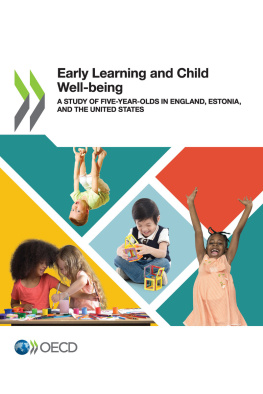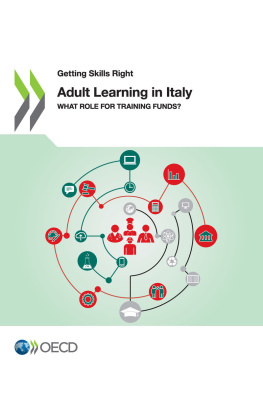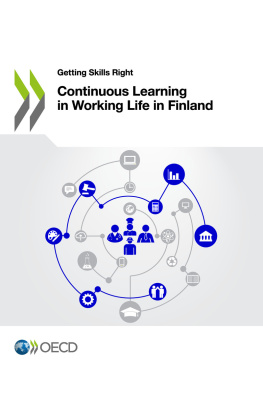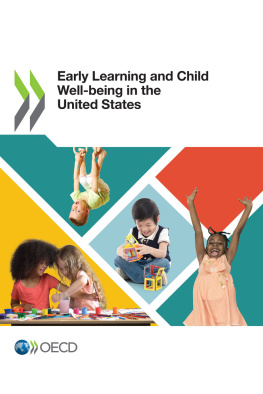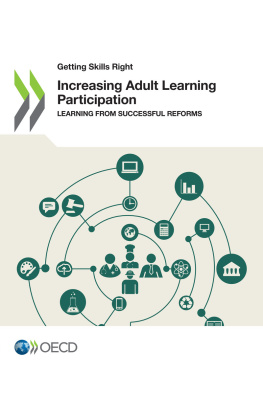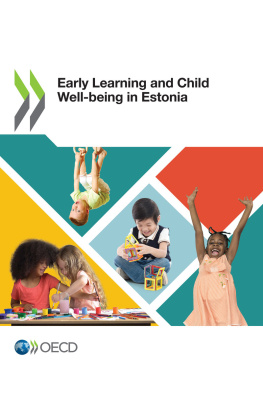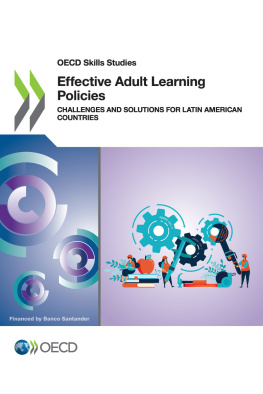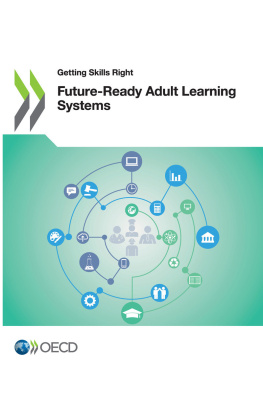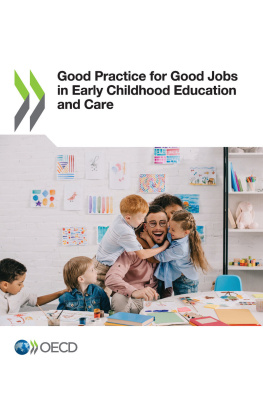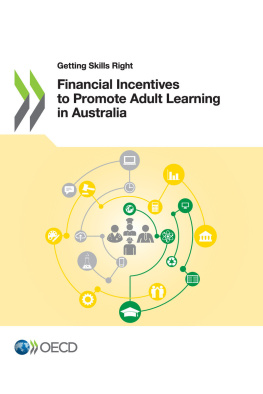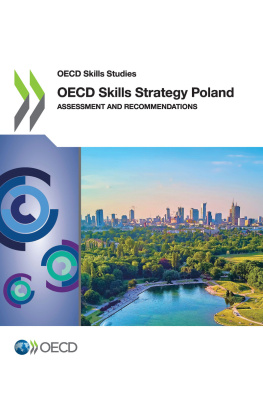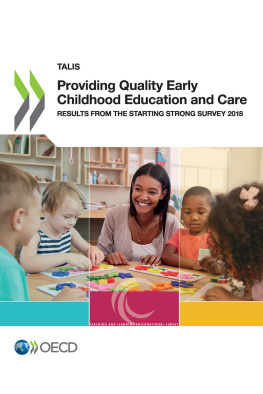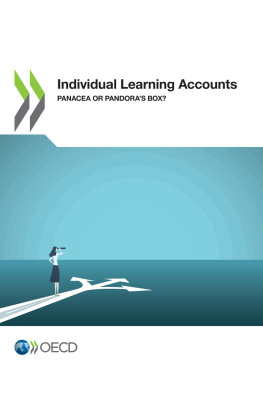OECD - Early Learning and Child Well-being
Here you can read online OECD - Early Learning and Child Well-being full text of the book (entire story) in english for free. Download pdf and epub, get meaning, cover and reviews about this ebook. year: 2020, publisher: OECD Publishing, genre: Children. Description of the work, (preface) as well as reviews are available. Best literature library LitArk.com created for fans of good reading and offers a wide selection of genres:
Romance novel
Science fiction
Adventure
Detective
Science
History
Home and family
Prose
Art
Politics
Computer
Non-fiction
Religion
Business
Children
Humor
Choose a favorite category and find really read worthwhile books. Enjoy immersion in the world of imagination, feel the emotions of the characters or learn something new for yourself, make an fascinating discovery.
Early Learning and Child Well-being: summary, description and annotation
We offer to read an annotation, description, summary or preface (depends on what the author of the book "Early Learning and Child Well-being" wrote himself). If you haven't found the necessary information about the book — write in the comments, we will try to find it.
OECD: author's other books
Who wrote Early Learning and Child Well-being? Find out the surname, the name of the author of the book and a list of all author's works by series.
Early Learning and Child Well-being — read online for free the complete book (whole text) full work
Below is the text of the book, divided by pages. System saving the place of the last page read, allows you to conveniently read the book "Early Learning and Child Well-being" online for free, without having to search again every time where you left off. Put a bookmark, and you can go to the page where you finished reading at any time.
Font size:
Interval:
Bookmark:
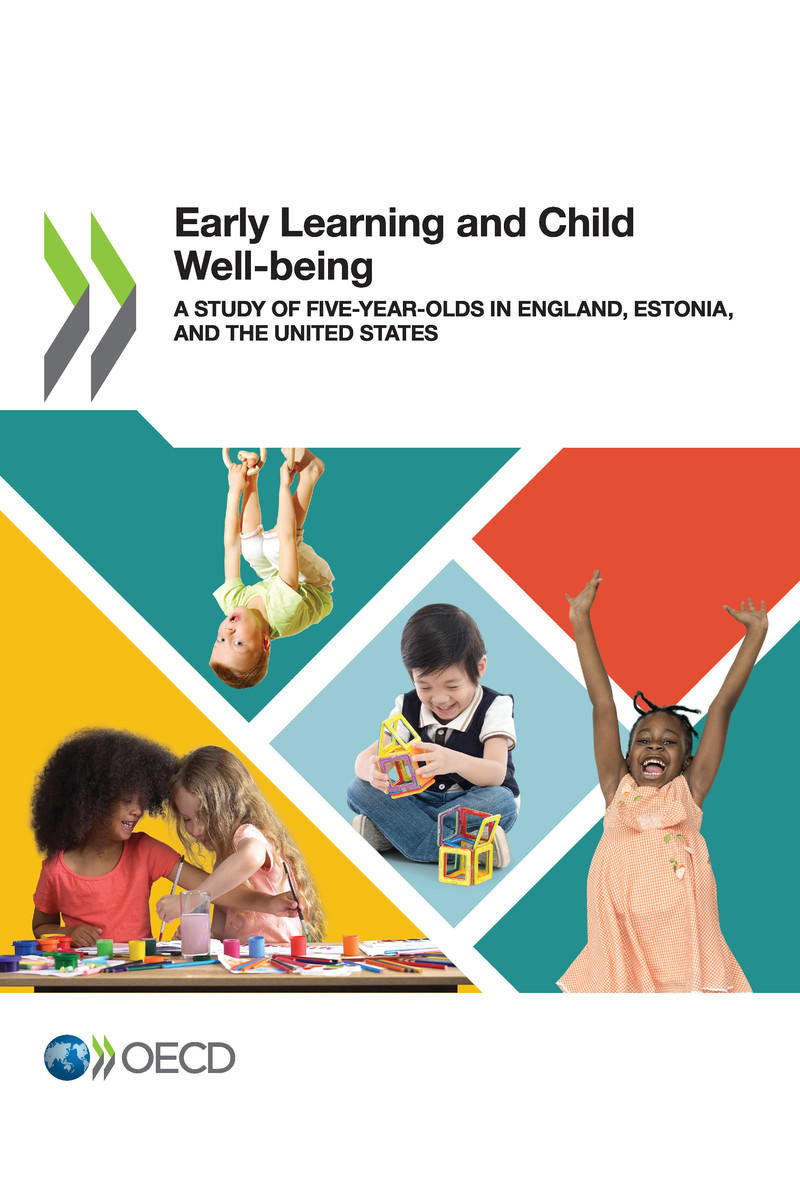
OECD (2020), Early Learning and Child Well-being: A Study of Five-year-Olds in England, Estonia, and the United States , OECD Publishing, Paris, https://doi.org/10.1787/3990407f-en .
It is not always easy for policy makers to make decisions in education that are focused on the future, on what our children need from education. It is easier to rely on what worked in the past, at least for some children, than to continuously question and try to understand how children are really faring. Yet making decisions in the absence of robust evidence is risky.
Many countries have increased their focus on early childhood education and care, with an expectation that childrens outcomes would be subsequently improved in school and beyond. Participation rates in early childhood education have increased, greater attention is being given to early years curricula and pedagogy, and more early childhood educators have advanced qualifications than ever before. The benefits for children, however, are not always apparent. At the same time, the international evidence countries can draw on to inform their policy approaches for childrens early learning is sparse.
The three countries that participated in the International Early Learning and Child Well-being Study - England (United Kingdom), Estonia and the United States - wished to better understand how well five-year-old children in their country were faring, in relation to children in other countries. These countries wished to create a common basis for countries to learn from each other on how to improve childrens early learning and well-being. They also wished to have a means to benchmark their progress over time.
The study investigated how well five-year-old children were developing across the range of early skills they need to succeed in education and grow up into happy, healthy and responsible citizens. These skills include both early cognitive development and social-emotional development. Children without this balance of skills will struggle to do well in school and in other areas of their lives. The study includes a direct assessment of childrens development and skills, enabling children to show us how they are really doing.
The study highlights early differences between children, such as between boys and girls and between children from advantaged and disadvantaged families. This helps us to see how we can better support children and their families, both in the earliest years and in the first years of schooling. Education systems that orient their priorities from an institutional lens to childrens actual needs will have greater success overall and will be better able to achieve improved equity.
Children love to learn and supportive, caring environments help them to do so. Our job is to ensure we are providing such environments.

Andreas Schleicher
Director for the Directorate for Education and Skills
Special Advisor on Education Policy to the Secretary General
The International Early Learning and Child Well-being Study (IELS) was a collaborative effort between participating countries and the OECD secretariat.
The development of this report was guided by Andreas Schleicher and Yuri Belfali. The lead author of the report was Rowena Phair, with chapters contributed by Javier Suarez-Alvarez ().
The publication was edited by Sally Hinchcliffe and designed by Fung Kwan Tam. Administrative support was provided by Valentine Bekka and Matthew Gill. Communications support was provided by Rachel Linden.
To support the technical implementation of IELS, the OECD contracted an international consortium of institutions, led by Maurice Walker at the Australian Council for Educational Research (ACER). The consortium included the International Association for the Evaluation of Educational Achievement (IEA), led by Anja Waschk, and cApStAn, under the lead of Roberta Lizzi.
To help to ensure that the study was rigorous and valid, IELS was guided and supported in its work by a Technical Advisory Group (TAG) and a Measurement Advisory Group (MAG). The members of the TAG were Iram Siraj (Chair), Rosemary Cahill, and Szilvia Papp. The members of the MAG were Ray Adams, Alla Berezner, Dan Cloney, Wolfram Schulz, Maurice Walker, and Nathan Zoanetti. Both groups provided input to the assessment framework for the study, instrument development for the assessments and contextual information, and the analysis of the findings.
This volume was prepared in close collaboration with the IELS teams from England, Estonia and the United States, led by Frances Forsyth, Tiina Peterson and Mary Coleman respectively. Their input to this report is gratefully acknowledged.
Starting behind in the early years means staying behind for individual children and for an education system as a whole. A childs development in the first few years of life significantly predicts his or her later success in education and ongoing levels of happiness and well-being. The most effective investment governments can make to enhance education and later life outcomes is to provide a strong start in childrens early years. Seeking to ameliorate individual or systemic learning issues at later ages is less successful and more costly than doing so earlier.
Education systems that wish to achieve a step-change in student outcomes are well advised to increase their focus on the quality, responsiveness and effectiveness of their early years policies for children. Like all areas of education policy, decisions affecting childrens early years of learning and well-being are fraught with political and commercial interests, in addition to ideology. Many claim they know what is best for children, yet the international data in this field is surprisingly limited. Moreover, while childrens needs and interests have always been diverse, childrens lives are changing at a greater pace than ever before. Thus, research findings on how best to support children and their families from 20, 10 or even 5 years ago may not be fully applicable to todays youngsters.
Font size:
Interval:
Bookmark:
Similar books «Early Learning and Child Well-being»
Look at similar books to Early Learning and Child Well-being. We have selected literature similar in name and meaning in the hope of providing readers with more options to find new, interesting, not yet read works.
Discussion, reviews of the book Early Learning and Child Well-being and just readers' own opinions. Leave your comments, write what you think about the work, its meaning or the main characters. Specify what exactly you liked and what you didn't like, and why you think so.

